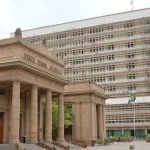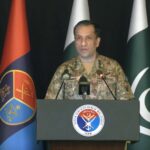By Sufian Qazi
The human nature desires freedom more than anything so man could pursue his own ways of life without being threatened by an unwanted change or taking dictations from strangers. Be it the social freedom, religious freedom or political freedom, the humanity has evolved into believing in the idea of liberty and revulsion for enslavement in any form. Allama Muhammad Iqbal and Muhammad Ali Jinnah were no different. They despised the bitter reality surrounding them where Muslims were being treated as second-class citizens in the British Raj. They feared that if Muslims of the subcontinent had no separate land, they would eventually land into the Hindu domination, following the British departure. However, the idea of Pakistan was never limited to merely getting a piece of land.
The dream of Pakistan is far more complex than most people understand. There are fundamentally three components of the ideology of Pakistan. First, Pakistan was supposed to revive the past glory of the Muslim civilization. Muslims have been a dominant political force for almost seven centuries in the subcontinent. As an idea, Pakistan carries historical baggage of Muslim aspirations and Muslim civilization that has flourished for centuries in this part of the world. Pakistan did not emerge out of nowhere; in fact, it is culmination of sacrifices, conversions and conquests that led to the Muslim rule in the subcontinent. While addressing at Aligarh in March 1944, Quaid-e-Azam expressed the similar opinion as he said: “Pakistan came into being the day when the first Hindu was converted to Islam.” Thus, Islam is the bedrock of ideology of Pakistan and raison d’etre for the Two-Nation Theory.
Second, Pakistan gives identity and safety to the Muslims of the Indian subcontinent. Had Pakistan not created, Muslims would have been obscured as minority in a society dominated by Hindus. Their rights would be at the mercy of Hindu rulers. Despite tall claims of largest democracy, today India has become a nightmare for minorities, especially Muslims. They are being institutionally marginalized and their basic rights are denied. They are facing religious persecution, forced conversions, cow vigilantism, destruction of mosques, and discrimination in employment, education and housing. In contrast, since its inception, the state of Pakistan has always denounced any form of discrimination in any form. Predominately, both Muslims and minorities enjoy equal rights in Pakistan as enshrined in the constitution and instructed by its founder. Muhammad Ali Jinnah explicitly said: “We are starting in the days where there is no discrimination, no distinction between one community and another, no discrimination between one caste or creed and another. We are starting with this fundamental principle: that we are all citizens, and equal citizens, of one State.”
Third, the forefathers dreamt Pakistan to be a modern, democratic and welfare Muslim state, a beacon for rest of the humanity, especially the Muslim world. The dream included individual and territorial security; social and economic justice; provision of education and healthcare; navigating Pakistan from low income to high income country; and making Pakistan a truly sovereign state. It is true that even after 75 years, we have not fully realized the dream of our forefathers but it does not mean that the people of Pakistan should become hopeless. Great nations are not built in days or months; it takes consistency, hard work and loyalty of citizens. We as a nation must come out of dilemma of blaming governments for all the ills. Governments are just reflection of overall society. Every citizen has a part to play in nation-building and is responsible to fulfil the dream of our forefathers. To quote Muhammad Ali Jinnah: “It is only with united effort and faith in our destiny that we shall be able to translate the Pakistan of our dreams into reality.”
The present situation of Pakistan may not be encouraging. Democratic system is still not fully functional. Politicians are ever fighting for their parochial group interests. Bureaucracy has forgotten the lessons of Muhammad Ali Jinnah. Judicial system is slow and many times ineffective to provide prompt justice. The media is equally polarized and creating more divisions within the society. The common Pakistanis are grappling with economic hardships. Our education system is inadequate to meet the needs of 21st century. An unfavorable geostrategic environment is pushing Pakistan to spend more on defence rather than human security. The regional trade is limited due to tensions between Pakistan and India, worsened by geopolitical interplay of global powers. Terrorists tried to shatter confidence of Pakistanis in the very idea of Pakistan. But the people of Pakistan have remained resilient in line with Muhammad Ali Jinnah’s saying: “There is no power on earth that can undo Pakistan.”
Despite all the odds, Pakistan is making progress though gradually. Pakistan is the first and only Muslim country to attain nuclear capability. Our Armed Forces are sixth largest in the world ready to defend motherland from internal and external challenges. Three successes peaceful democratic transitions is a silver lining that our political system is evolving to become a true democracy. Around 63 percent population of the country comprises youth aged between 15 and 33. This youth bulge is a ray of hope for prosperous Pakistan if their energies are channeled correctly. However, we are still far from the dream of our forefathers. This Independence Day reminds us that we may have failed Pakistan but the idea of Pakistan has not failed. Jinnah’s Pakistan will revive past Muslim glory, provide safety to the people, and welfare of every citizen will be guaranteed. Pakistan has everything at its disposal to become Jinnah’s Pakistan only if every citizen, rich or poor, powerful or powerless, put collective interest ahead of personal interest. This dream of forefathers is achievable as Muhammad Ali Jinnah said: “Failure is the word unknown to me.”
The writer is a Islamabad-based independent researcher.
Disclaimer:
The views and opinions expressed in this article/Opinion/Comment are those of the author and do not necessarily reflect the official policy or position of the DND Thought Center and Dispatch News Desk (DND). Assumptions made within the analysis are not reflective of the position of the DND Thought Center and Dispatch News Desk News Agency.





